If China appears to be in a hurry, that’s because its rise is almost over, according to Michael Beckley and Hal Brands.
China’s multidecade ascent was aided by strong tailwinds that have now become headwinds. Its government is concealing a serious economic slowdown and sliding back into brittle totalitarianism. The country is suffering severe resource scarcity and faces the worst peacetime demographic collapse in history. Not least, China is losing access to the welcoming world that enabled its advance. Beijing threw tens of billions of dollars into biotech, yet its COVID-19 vaccines can’t compete with those produced in democratic countries, they write for Foreign Affairs.
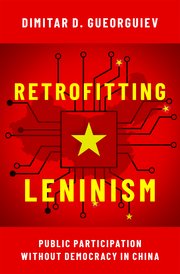 The pace of recent events suggests Xi Jinping really is in a hurry, the Economist adds. He has clamped down not only on big business but also on the entertainment sector. Ideological education in schools has been reinforced: children as young as six are being taught about “Xi Jinping Thought,” as Xi strives to remould society in a way that neo-Maoists endorse, it observes:
The pace of recent events suggests Xi Jinping really is in a hurry, the Economist adds. He has clamped down not only on big business but also on the entertainment sector. Ideological education in schools has been reinforced: children as young as six are being taught about “Xi Jinping Thought,” as Xi strives to remould society in a way that neo-Maoists endorse, it observes:
Especially since the pandemic began, [the CCP] has become omnipresent in neighbourhoods in a way not seen since the 1980s. Grassroots party members are the chief enforcers of quarantines and controllers of people’s movements. In the past two years, several central-level documents have promoted the establishment of “moral review councils” in the countryside. These are made up of party worthies and, sometimes, police officers who sit in judgment on fellow villagers’ behaviour and publicly shame those who have committed offences such as littering or failing to look after an elderly parent. Some urban neighbourhoods have set up similar “moral clinics”.
The University of Cambridge is to introduce guidance for upholding academic freedom and national security in international agreements, after coming under fire for its links with China and the telecoms company Huawei, the FT reports. Vice-chancellor Stephen Toope on Friday announced the guidelines on navigating projects with states that “do not share the UK’s commitment to democracy and the rule of law” amid “rising political tensions”. Cambridge has been accused of being “about the worst offender of all the universities when it comes to dependency on China.”
China’s ruling Communist Party (CCP) has been widely accused of undermining academic freedom and promoting censorship more broadly as part of what the National Endowment for Democracy’s International Forum calls Beijing’s ‘sharp power.’
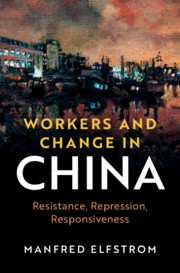 Authoritarian governments like China’s, whatever their historical backgrounds, have weaker institutions like courts and elections for keeping social disputes at arm’s length, notes Manfred Elfstrom of the University of British Columbia and author of the new book, Workers and Change in China: Resistance, Repression, Responsiveness. So every challenge they run up against is just absorbed right into the body of the state in a way that it isn’t necessarily in a liberal democracy.
Authoritarian governments like China’s, whatever their historical backgrounds, have weaker institutions like courts and elections for keeping social disputes at arm’s length, notes Manfred Elfstrom of the University of British Columbia and author of the new book, Workers and Change in China: Resistance, Repression, Responsiveness. So every challenge they run up against is just absorbed right into the body of the state in a way that it isn’t necessarily in a liberal democracy.
Research shows that strikes are more prevalent in authoritarian settings than democratic ones, so the CCP must look at history, at the rise of Solidarnosc in Poland, and “be pretty afraid of independent trade unions,” he adds. “It’s difficult to perfectly coordinate carrots and sticks over the long haul. One of them ends up gumming up the other,” tells Kaiser Kuo of Sinica’s SupChina podcast.
The outcome of the global competition between democracy and autocracy right now is uncertain, argues Michael Seibel, a managing director at Y Combinator. For democracies to win this contest, they will need to leverage software to deliver more prosperity to a wider cross section of their populations, while still preserving individual rights, he writes for TIME. In the following 10 years, the chief executive officers of every large software company in a democratic country must embrace a new key performance indicator: the success of the software of democracy.
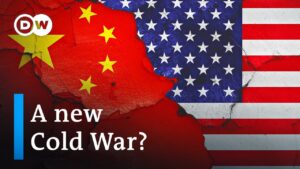
CREDIT: DEUTSCHE WELLE SCREEN GRAB
This confrontation will be the most consequential geopolitical, geo-economic, technological and ideological power struggle for decades to come, argues Dmitri Trenin, the director of the Carnegie Moscow Centre. The world order that is emerging in the 21st century is likely to be multi-layered or multi-dimensional which will impede efforts to advance democracy, he writes for the Economist.
Afghanistan stands for the ultimate collapse of the post-cold war belief that the United States was in a position to remake the world in its own image, he believes. The promotion of Western democracy and liberal values has run against apparently insurmountable barriers in a number of places, from Afghanistan and Iran to China and Russia. But this has not yet dawned on officials in Washington.
Coda Story’s Isobell Cockerill explains how Nuremberg-based dissident Liu Dejun is helping people in China resist CCP surveillance and censorship. Liu’s work attracted the attention of the artist Ai Weiwei, who made a 2010 documentary featuring Liu called Hua Hao Yue Yuan (Blissful Harmony – above) about how the Chinese authorities treat activists. After the documentary’s release, he was among those calling for a “Jasmine Revolution”, inspired by the Arab Spring uprisings calling for democracy. He was arrested and tortured in Chinese detention. Upon his release he fled to Europe in 2013. RTWT
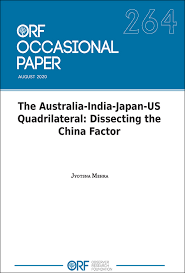 Responding to Beijing’s aggression, the Quad (Quadrilateral Security Dialogue) and the new AUKUS (Australia–United Kingdom–United States) alliance demonstrate that the U.S. is “forging overlapping mini-coalitions to ensure that advanced democracies stay ahead in key technologies, while the G-7 and NATO are staking out tougher positions on Taiwan and other issues,” add Beckley, Associate Professor of Political Science at Tufts University, and Brands, Professor of Global Affairs at Johns Hopkins SAIS.
Responding to Beijing’s aggression, the Quad (Quadrilateral Security Dialogue) and the new AUKUS (Australia–United Kingdom–United States) alliance demonstrate that the U.S. is “forging overlapping mini-coalitions to ensure that advanced democracies stay ahead in key technologies, while the G-7 and NATO are staking out tougher positions on Taiwan and other issues,” add Beckley, Associate Professor of Political Science at Tufts University, and Brands, Professor of Global Affairs at Johns Hopkins SAIS.
There now appears to be consensus in all four [Quad] capitals that they can’t prevent Chinese belligerence by kowtowing to Beijing, the Wall Street Journal’s Sadanand Dhume reports. “You have to squint very hard not to see a serious budding partnership between the Indo-Pacific’s four leading democracies,” says Richard Fontaine, chief executive of the Center for a New American Security.
“The idea that everything is premised on changing Chinese minds has gone out the window,” he adds. “I think increasingly in Washington and capitals around the world they see that a policy built on not provoking China hasn’t worked.”
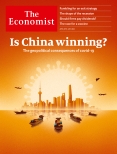 Under Mr. Biden, we’ve seen the Quad progress from “friends who chatted at a party to throwing their own party,” says Tanvi Madan, a senior fellow at the Brookings Institution.
Under Mr. Biden, we’ve seen the Quad progress from “friends who chatted at a party to throwing their own party,” says Tanvi Madan, a senior fellow at the Brookings Institution.
But, Beckley and Brands caution……
When authoritarian leaders worry that geopolitical decline will destroy their political legitimacy, desperation often follows. For example, Germany waged World War I to prevent its hegemonic aspirations from being crushed by a British-Russian-French entente; Japan started World War II in Asia to prevent the United States from choking off its empire. …China today checks many worrying boxes. Slowing growth? Check. Strategically encircled? Check. Brutal authoritarian regime with few sources of organic legitimacy? Check. Historical axe to grind and revanchist ambitions? Check and check.
Revisionist powers tend to become most dangerous when the gap between their ambitions and their capabilities starts to look unmanageable, they conclude. RTWT
— Democracy Digest (@demdigest) October 1, 2021







